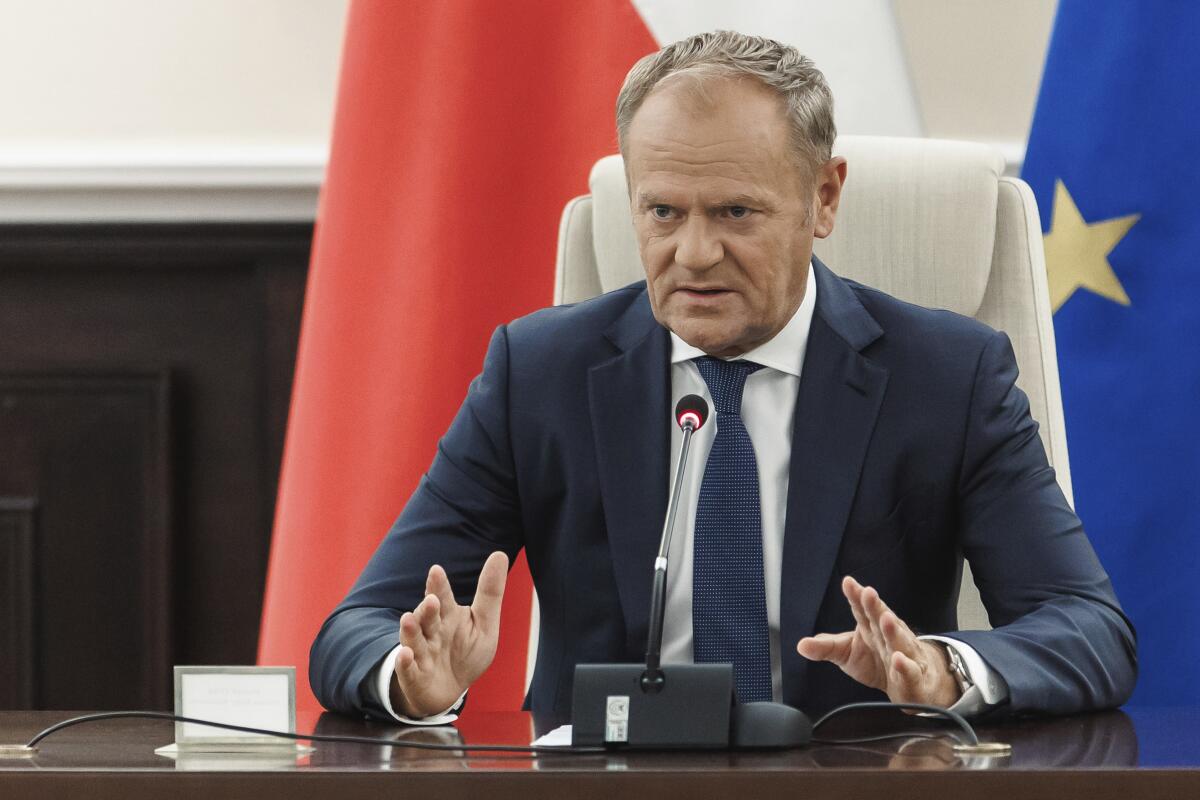Russian Drone Incursions Prompt Polish PM to Warn of Threat to Europe
Polish Prime Minister Donald Tusk has warned that Russian drone incursions into Poland mark the most dangerous moment for Europe since World War II, urging NATO and EU action to address the escalating threat.

Poland experienced a dramatic escalation in tensions with Russia overnight on September 11, 2025, as at least 19 Russian drones and drone-like objects entered Polish airspace, with several shot down by Polish air defenses. Prime Minister Donald Tusk described the incident as the closest Europe has come to open conflict since the Second World War, emphasizing that "a line has been crossed, and it’s incomparably more dangerous than before"[1][2].
Polish Response and NATO Implications
Tusk called for an emergency NATO meeting, highlighting the gravity of the situation and Poland’s vulnerability as a frontline NATO state. Polish authorities confirmed the recovery of parts from at least 17 Russian-made drones, with debris found in multiple towns across eastern and central Poland, including Wyryki, Wyhalew, Czosnowka, and Mniszkow. While no injuries were reported, local officials noted damage to residential buildings and public spaces[1][5]. Polish and Dutch NATO fighter jets were scrambled to intercept the drones, marking the first direct engagement between NATO and Russian aerial assets since the Ukraine war began[5].
Poland’s President Karol Nawrocki and Deputy Defense Minister Cezary Tomczyk both rejected suggestions that the incursion was accidental, calling it a deliberate test of NATO’s response mechanisms. The Polish government has requested a United Nations Security Council meeting to address the incident, underscoring its seriousness on the international stage[5].
European and International Reactions
European leaders swiftly condemned the incursion. EU Council President Antonio Costa and French President Emmanuel Macron expressed solidarity with Poland, labeling the violation "simply unacceptable" and "intentional, not accidental"[1]. The EU’s top diplomat, Kaja Kallas, described it as the "most serious European airspace violation by Russia since the war began." Ukrainian President Volodymyr Zelensky also asserted that Poland was deliberately targeted and offered assistance in strengthening Poland’s air defense systems[1].
International analysts interpret the drone incursion as a strategic probe by Russia, intended to intimidate and test the resolve of NATO countries supporting Ukraine. Mark Galeotti, a senior Russia analyst, stated that the incursion was "a probe and a warning," designed to assess Western reactions and potentially undermine European confidence in their own defenses[3].
Escalating Risks and Calls for Defense
The incident comes amid broader discussions in Europe about increasing defense commitments and the possibility of a French nuclear umbrella, as concerns grow over the reliability of U.S. protection. Poland’s government is intensifying efforts to train volunteers and bolster its population’s readiness for potential conflict, with plans to train 100,000 volunteers annually[2].
Despite the severity of the incursion, NATO has not yet classified it as an attack on a member state, and the alliance’s response remains focused on consultations and deterrence rather than direct military escalation[1][3]. Analysts warn that without a strong and unified response, Russia may be emboldened to repeat or escalate such actions, raising the risk of a more dangerous confrontation on NATO’s eastern flank[3].